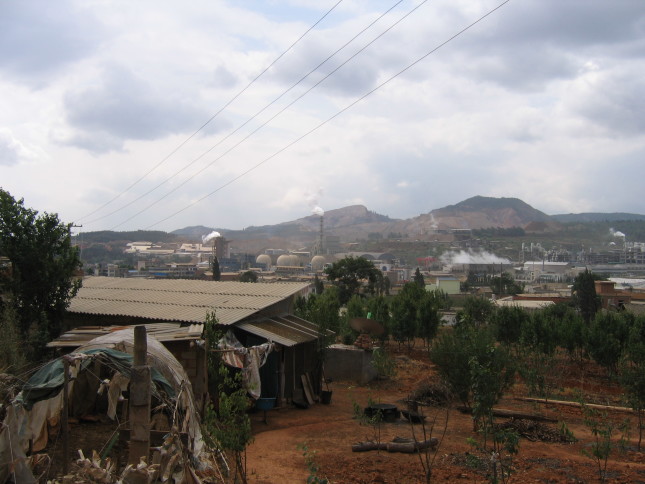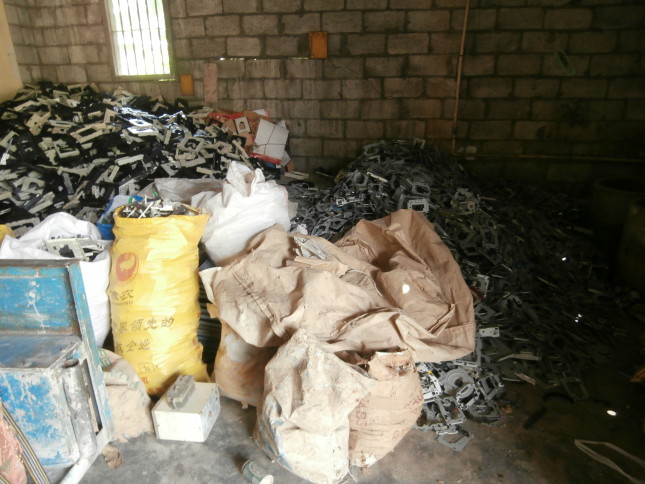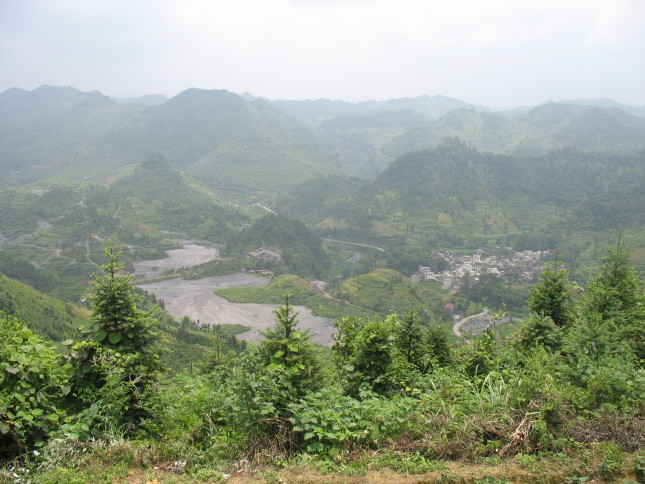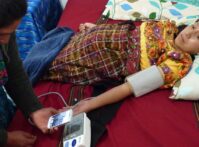-
Resigned Activism: Rural China’s Quiet Environmentalism
December 8, 2017 By Anna Lora-Wainwright
While conducting ethnographic fieldwork in Yunnan province in 2009, I discovered a new vegetable: the cabbage-turned-turnip. Villagers in Baocun explained that after the town’s fertilizer plants began extracting and processing phosphorous, their cabbages began to grow very long roots, resembling turnips, as they adapted to the new polluted environment.

While conducting ethnographic fieldwork in Yunnan province in 2009, I discovered a new vegetable: the cabbage-turned-turnip. Villagers in Baocun explained that after the town’s fertilizer plants began extracting and processing phosphorous, their cabbages began to grow very long roots, resembling turnips, as they adapted to the new polluted environment.
Like the cabbage-turnip, the villagers themselves adapted: When the research team and I asked villagers about their health, their initial answer was almost always, “my health is good.” But as each interview progressed, we learned that most had suffered recurrent rhinitis and throat infections, joint pain and swelling, and headaches. One doctor told his patient that his particularly bad nasal infection was “normal” in a polluted place like Baocun. Other doctors quipped that newcomers would “get used to pollution” and that their nosebleeds and infections would decrease or disappear.
Both of these surprises—the appearance of a new vegetable and the normalization of endemic ailments—were “Eureka” moments along my decade-long journey towards my recent book, Resigned Activism: Living With Pollution in Rural China. The book focuses on three rural sites suffering from three different pollutants: Baocun is affected by phosphorous processing, Qiancun by lead-zinc mining, and Guiyu by processing of electronic waste. Strikingly, residents of all three sites displayed a mixture of ambivalence, resentment, and resignation towards the toxic effects of local economic development.

Living With Pollution
After years living in rural China, I was particularly keen to show that villagers are not ignorant about pollution and the threats it poses. I was also keen to highlight that not only middle-class homeowners stand up against pollution, but that villagers also play an important role in demanding more sustainable development. While I found plenty of evidence to support my first point, my fieldwork raised more questions about the second than it answered. My findings pushed me to shift my focus to the many often undetectable ways that families, individuals, and communities engage with pollution on a daily basis, as well as to more deeply examine how the actions they take are shaped by their expectations of what counts as a healthy body and a healthy environment.
A number of studies of environmentalism in China focus on specific strategies such as petitions or lawsuits. But citizens’ reactions to pollution are more multifaceted than any single activist strategy may suggest. My research has convinced me that there is no inevitable path from the discovery of pollution’s detrimental effects to a collective identity premised on these shared experiences, and, subsequently, to efforts to mobilize against it. Routine pollution and acute events (such as explosions of acid depots) alarmed residents and sometimes prompted political acts such as small blockades, protests, and petitions. However, such local acts rarely escalated to higher levels, and did not obtain the support of scientific experts or attract substantial redress from officials.

In the 1980s, for instance, villagers had petitioned the Baocun government demanding an end to pollution, but these efforts were suppressed by the township. More recently, journalists attempting to report on pollution have been discouraged by residents, who have opted instead to negotiate with the industry through local intermediaries such as village officials. Indeed, local governments shape the forms and effects of activism—and most often, they endeavor to contain it within the local area.
Studies of environmental injustice understandably tend to focus on the mechanisms through which activism develops and on its effects. Less attention is given to the development of fatalism and resignation, and to the processes through which pollution becomes rooted in local communities. The absence of sustained collective action is more often explained as a direct consequence of the locality’s economic dependence on polluting activities. But what about communities that are torn apart by pollution instead of coming together against it? What about less visible forms of activism? What about resignation?
Resigned to Activism
The term “resigned activism” describes acts that may fit the conventional label of collective environmental contention, such as protesting at factory gates and filing petitions. But it also includes less confrontational and more individualized or family-oriented tactics aimed at minimizing pollution in one’s immediate surroundings, such as purchasing bottled water, closing windows, wearing masks, avoiding harmful jobs, and temporarily sending small children and pregnant women to live elsewhere.
Resigned activism is not a starting point; instead, it is learned state of being. These individualized and family-oriented strategies, should not be written off as selfish, as they are often a last resort. These tactics do not necessarily preclude collective action; individuals and communities may be waiting for the opportune moment to engage in more collective action. These subtle forms of activism may be even more important right now, as control on civil society is particularly tight.
Recognizing these alternative forms of activism demands that we pay attention to environmental concerns that may be expressed in unexpected and less visible forms. While the concept of resigned activism may have emerged from my fieldwork, it is not exclusive to rural China. Rather, it is a conceptual invitation to redefine activism, to look beyond its traditional and visible instances, and to view the daily actions of those living with pollution around the world as a quiet—but not silent—protest.
Anna Lora-Wainwright is an associate professor studying the human geography of China at the University of Oxford. She is the author of Fighting for Breath: Living Morally and Dying of Cancer in Rural China and editor of a special collection titled Dying for Development: Pollution, Illness and the Limits of Citizens’ Agency in China. Her current research focuses on rural-urban coalitions against incineration, the development of citizen science and experiences of urbanization and land loss. She is director of the Leverhulme Trust Project, “Circuits of e-waste and value: Making e-waste subjects in China and Japan.”
The project described in this article was supported by the British Academy; British Inter-University China Centre; FORHEAD (The Forum for Health, Environment and Development); John Fell OUP Fund; Leverhulme Trust; Philip Leverhulme Prize in Geography; Social Science Research Council; and the University of Oxford.
Sources: “Collective Resistance in China: Why Popular Protests Succeed or Fail” by Yongshun Cai, “Environmental Litigation in China: A Study in Political Ambivalence” by Rachel E. Stern, The Journal of Peasant Studies, “Resigned Activism: Living with Pollution in Rural China” by Anna Lora-Wainwright
 A Publication of the Stimson Center.
A Publication of the Stimson Center.








